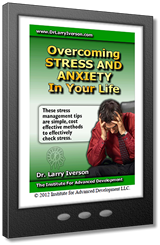Emotions Have No Right Or Wrong
(continued from last week…)
Feelings Are Valid
Couples communication tip number six is that emotions are not normally right or wrong. They just are.
We are emotional beings. Everything we do, we do because it feels right to us or it feels wrong to us or it’s something we need to fix or there’s something going on that gives us a certain gut-level response. We are emotional human beings. The most logical person on the planet has feelings about things.
Emotions aren’t really wrong. It’s just how you react to them that in many cases that causes the conflict. Often we hesitate to talk to our partner about what we’re feeling because our feeling may be strong and we’re afraid that they’re going to feel a certain way about our feelings and what we say and that may not feel good to us either.
Feelings–we aren’t wrong because of them. They aren’t wrong because of them. Human beings are emotional creatures. Emotions are neither right nor wrong; they just are.
Frequently the primary driver of the emotion is just how you see something, your point of view or perspective. It’s your focus, it’s what you’re dwelling on. It’s the thing you’re looking at, at this point in time, and it’s how you choose to react or respond to that situation that in many cases causes the conflict.
Quite often our feelings are difficult to put into words. It can be confusing. One of the things that we sometimes do when we have strong feelings is to want to have a target. We want to “put it somewhere.” We want to have a place to “hang that emotion.” And if that other person has done something that we can “hang or pin that emotion on,” we do it. That does not benefit us or our relationship.
The better we can define what we’re feeling, the more clearly we can talk about it, the more that we can access it and help the other person understand what’s going on with us from an “I” experience not a “you” experience, the better off both of us will be. Emotions don’t really judge; they just are. When conflict happens, we have strong feelings. Again, that’s because we’re emotional beings.
Expand your emotional vocabulary, take a look beneath what you think is anger. Take a look at the feelings. Take a look at what’s underneath sadness. Think about what may be the driver of that emotion. Think about a disappointment or sadness. How do you feel that? What is it in your experience that is generating some of that? Talk to the person about it, not just about that they caused X – sadness, anger, happiness, fear – to happen. You can take it to a deeper level.
Our emotions quite often are triggered by our thoughts, our interpretations, our judgments, and our perspective. Over 80% of all conflicts are conflicts of point of view or conflicts of perspective. It’s not because you’re right and they’re wrong or they’re right and you’re wrong.
It’s because we are different. We are male and female, older/younger, have more experience/less experience, are happy or sad. We have different friends, different personalities. We grew up in different families. We have different hobbies and interests. We work different kinds of jobs. We’re different, so this conflict of perspective is really normal.
Those emotions can be triggered by our thoughts, interpretations, judgments, memories; and the difficult part about all this is identifying the emotions as they come up in combination with all the other things going on around us.
Things get wrapped together. My emotions about my tough day at work can come home and get wrapped right up in a disagreement I’ve had with my spouse before I went to work. Or maybe there’s something they feel really strongly about that they believe we ought to be doing and you’re having a tough day and they want to talk about it when you get home and you carry that struggle at work right into the discussion at home about this thing that they want to achieve.
We need to slow down and separate things a bit. A classic example takes place when someone comes home really late and says, “I’ve had a problem and here’s what happened,” and the other person gets upset because they were worried about them. In many cases we need to separate our worry from the problem that occurred or the late hour. It’s tough to feel relieved and angry and hurt all at the same time, but we do it.
We can improve our relationships when we accept what the other person feels is normal and natural. We don’t have to judge them for it. We don’t have to give in to things, but we do have to allow them to have their emotions and us to have our emotions without someone being wrong. We can find that kernel of truth inside of what’s happening. To feel is very human. To control your reactions, to not let your perspective just blow away is a crucial and important point.
One of the important things we must be able to do is practice empathy. True empathy is the ability to step into the other person’s perspective and look at the world through their eyes, not me standing back saying, “Oh, I know what you mean,” or “I know what you think,” but slowing down and trying to look back at yourself, them and the situation from his or her own perspective.
When people nag, when people go over the same thing again and again, it may be because they think they haven’t been heard or because there is something left unresolved.
When couples communicate their feelings, it is a cry for empathy, a cry for connection, a desire to be validated or feel like that person cares about them and is listening. They want their feelings to be recognized, people want to be accepted. We all do.
It’s a crucial and very important piece. We don’t necessarily have to even agree with each other, but we do need to try and understand why that person feels the way they do and try and look at it from their perspective. They do need to know that you understand how they feel.
When your partner is asking for attention or they’re seeking your understanding, they don’t necessarily always want you to fix the situation. They want to have a connection. They want you to know their perspective. They want you to look at the situation from their point of view. Sometimes they want help fixing it, but in many cases they just want you to have understanding.
They may just want you to understand and acknowledge what they’re feeling. For you to truly hear their story may be all that’s needed from you. When your partner tells you the reasons for feeling the way they do, listen. Don’t let your defensiveness get in the way! Pay attention!
If an angry child says, “I don’t like you anymore”, do you really have to be too concerned about the fact they don’t like you? Do you think it might pass? Probably a good chance it will.
This is the same thing. If your partner is experiencing something, try and be there for them. Try and allow that child part of them to be known and let them know you get it, you hear them, you understand their perspective.
Give that same unconditional empathy that you would hope to receive from them. Being compassionate means that you can empathize with someone, that you can get it from their perspective. You don’t have to be like them. You just need to understand their perspective, and having accurate empathy allows you to be closer to that and what’s important to them.
(to be continued…)
![]()
Order this article as an AudioBook!
Has this program caught your interest? You can purchase and immediately download this entire 14-part program! It includes a full-length AudioBook file as well as a complete PDF transcript!
Get all 14 segments of this program right now!
Order Now: Communication Essentials – Only $9.95
 Overcoming Stress and Anxiety In Your Life
Overcoming Stress and Anxiety In Your Life These stress management tips are simple, cost effective methods to effectively check stress. Everyone feels stress. It’s a fact of life. Sometimes pressure can overtake you and make you feel completely out of control. “Overcoming Stress and Anxiety” will give you over 20 ways to overcome this overwhelm. This 65 page eBook is a comprehensive guide to dealing with stress, anxiety and the pressures of life that keep you from being happy. Here’s the chance to beat stress and anxiety once and for all while gaining strategies for greater happiness and increased energy.

Posted: June 15th, 2022 under Audio Programs.
Tags: anger, attention, communication, conflicts, couples, defensive, desire, disappointment, empathy, feelings, judge, judgements, perspective, point of view, triggered, truth






